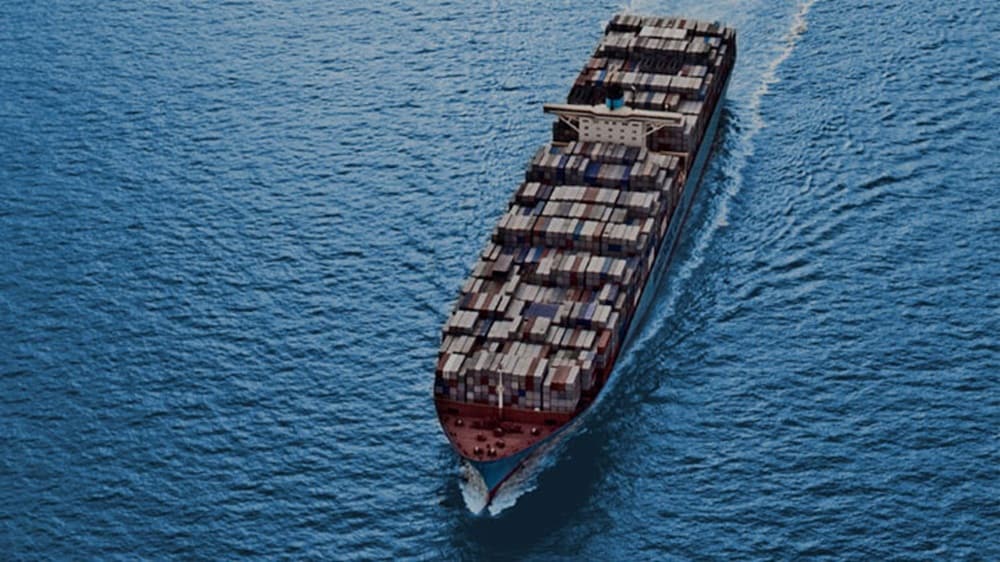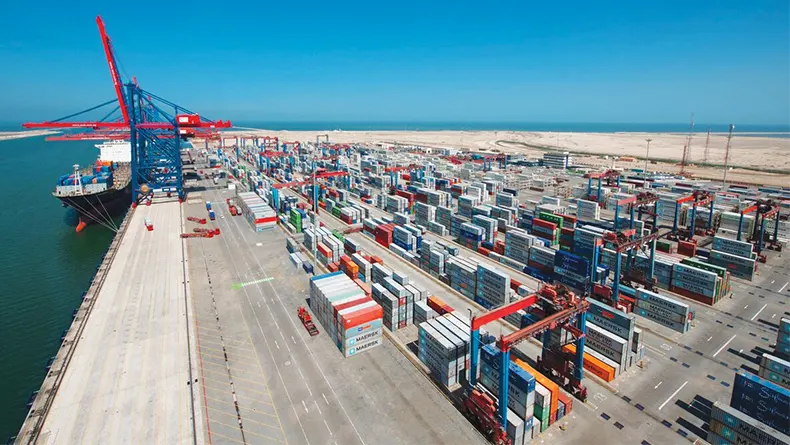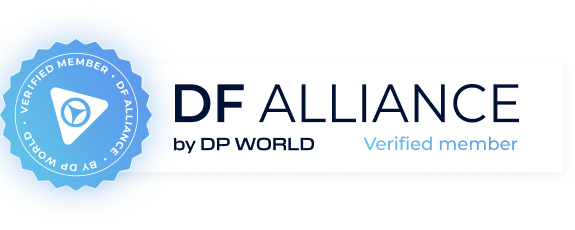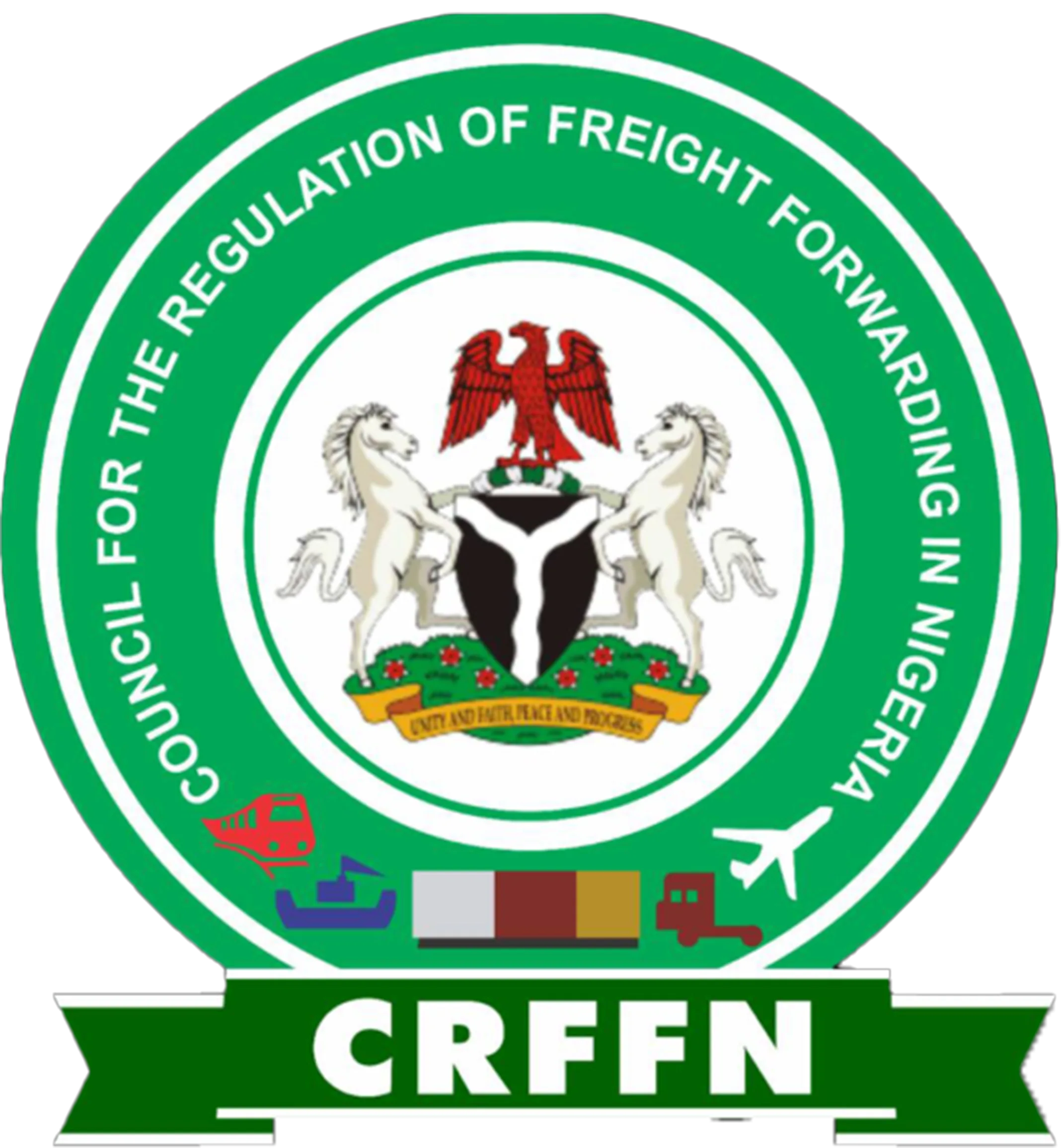Connecting Tunisia across Africa and beyond
Limark has been a reliable partner for Tunisian businesses, fostering growth and success in international trade. We provide end-to-end logistics solutions designed to meet the various needs of Tunisian industries, ensuring the efficient and secure movement of everything from automotive components and textiles to olive oil and dates.
Our extensive network, spanning key ports across the Mediterranean and strategic partnerships with global carriers, provides unparalleled access to African, European, and international markets, empowering Tunisian businesses to thrive on a global scale.

Import regulations
Importing goods to Tunisia requires navigating specific procedures and documentation. Here’s a breakdown of the essential requirements:
Product Categories Requiring Import Licenses/Permits
Food and Agricultural Products
Imports of meat, dairy products, fish, grains, fruits, and vegetables require import permits and health/phytosanitary certificates from the Ministry of Agriculture, Water Resources, and Fisheries (MAWRF).
Specific products like sugar, wheat, and certain types of oilseeds are subject to quotas and require additional authorizations.
Pharmaceuticals and Medical Devices
- Importation of pharmaceuticals and medical devices is regulated by the Ministry of Health (MoH).
- Marketing Authorization (AMM) from the Direction de la Pharmacie et du Médicament (DPM) is required for all medicines.
- Medical devices must comply with relevant European Union (EU) standards and be registered with the DPM.
Chemicals and Hazardous Materials
- The National Agency for the Protection of the Environment (ANPE) regulates the import of chemicals and hazardous materials.
- Import permits are required, and detailed safety data sheets (SDS) must be submitted.
- Compliance with international conventions (e.g., Basel Convention, Rotterdam Convention) is mandatory.
Vehicles and Spare Parts
- The Ministry of Industry and Technology (MIT) regulates the import of vehicles and spare parts.
- Import permits are required for new and used vehicles.
- Age restrictions and homologation (conformity assessment) requirements apply.
Textiles and Apparel
- The Ministry of Trade and Export Development (MTED) regulates the import of textiles and apparel.
- Import permits may be required for certain textile products.
- Surveillance measures and import restrictions may be in place to protect the local industry.
Prohibited and Restricted Imports
Prohibited
- Narcotic drugs and psychotropic substances
- Pornographic and obscene materials
- Counterfeit and pirated goods
- Hazardous waste (Basel Convention)
- Ozone-depleting substances (Montreal Protocol)
- Weapons and ammunition (except with authorization)
- Asbestos
- Radioactive materials (except for medical and research purposes)
Restricted (require special permits)
- Live animals and animal products (require health certificates)
- Plants and plant products (require phytosanitary certificates)
- Alcohol and tobacco products (subject to high excise taxes)
- Used clothing and footwear
- Certain chemicals and pesticides
- Endangered species and products (CITES permits required)
Relevant agencies
- Tunisian Customs
- Ministry of Finance
- Ministry of Agriculture, Water Resources, and Fisheries (MAWRF)
- Ministry of Health (MoH)
- Ministry of Environment (ME)
- Ministry of Industry and Technology (MIT)
- Ministry of Trade and Export Development (MTED)
- National Agency for Protection of the Environment (ANPE)
- Directorate of Pharmacy and Medicine (DPM)
Free Time
- Typically, 5 days for general cargo and 10 days for containerized cargo after discharge.
- Varies depending on the shipping line and port.
Demurrage charges
- Applied when the free time is exceeded.
- Calculated per container, per day.
- Rates vary depending on the shipping line, container size, and time elapsed.
Detention Charges
- Applied when the container is held beyond the agreed-upon time for return to the shipping line after being picked up from the port.
- Separate from demurrage charges.
- Rates vary depending on the shipping line and container size.
Storage Limitations
- Port terminals have limited storage capacity.
- Containers not cleared within the allowed time are moved to an off-dock depot at the importer’s expense.
Calculation Methods
Demurrage and detention charges are calculated based on calendar days, including weekends and public holidays.
Commercial Invoice
- Detailed description of goods (including HS codes)
- Quantity, weight, and unit price of goods
- Total invoice value (in USD or EUR)
- Incoterms (International Commercial Terms)
- Payment terms
- Consignee and consignor details
Packing List
- Detailed list of all items in each package
- Description, quantity, weight, and dimensions of each item
- Package markings and numbers
Bill of Lading/Airway Bill
- Evidence of the contract of carriage between the shipper and carrier
- Details of the shipment, including the consignee, consignor, and port of loading/discharge
Certificate of Origin
- Declares the origin of the goods
- Issued by the Chamber of Commerce in the exporting country
- May be required for preferential tariff treatment under trade agreements (e.g., EU-Tunisia Association Agreement)
Import License/Permit (for regulated goods)
- Issued by the relevant government agency
- Required for specific products as mentioned above
Insurance Certificate
- Covers the value of the goods during transportation
Other Certificates
- Phytosanitary certificate (for plants and plant products)
- Health certificate (for animals and animal products)
- Certificate of analysis (for chemicals and food products)
- CITES permit (for endangered species)
Import licenses and permits
- Identify the Regulating Agency:
- Determine the specific ministry or agency responsible for your goods based on the product category.
- Gather Required Documents:
- Proforma invoice or commercial contract
- Technical specifications and data sheets (if applicable)
- Certificates of origin, analysis, quality, etc.
- Business registration documents (for companies)
- Taxpayer identification number (TIN)
- Any additional documentation specific to the product or agency
- Submit Application:
- Complete the import permit application form.
- Submit the application along with required documents and fees to the relevant agency.
- Applications are typically submitted online or in person.
- Processing and Approval:
- The application will be reviewed and processed by the agency.
- Processing times vary but can take several weeks.
- If approved, the import permit/license will be issued.
- Validity and Renewal:
- Validity periods vary depending on the product and agency.
- Renewal procedures involve submitting a new application with updated documents before the expiry date.
- Costs:
- Import permit fees vary depending on the product and agency.
- Additional costs may include inspection fees and testing fees.
Customs clearance procedures
- Pre-arrival Processing:
- Importer or their agent lodges the import declaration (IDF) through the SOTUVER online system.
- Customs performs risk assessment.
- Arrival and Unloading:
- Vessel or aircraft arrives at the port or airport.
- Cargo is unloaded and placed in customs control.
- Document Verification and Duty Assessment:
- Customs verifies the submitted documents.
- Import duties, taxes, and fees are calculated based on the HS code, value, and origin of the goods.
- Payment of Duties and Taxes: The importer or their agent pays the assessed amount.
- Inspection (if required): Customs may select shipments for physical inspection based on risk assessment.
- Release of Goods: If the shipment complies with all regulations and requirements, and duties/taxes are paid, customs releases the goods.
Port/Terminal operations
Major Seaports
Port of Rades: The largest and busiest port, handling containerized, bulk, and general cargo.
Port of Sfax: Another important port, mainly handling bulk cargo and phosphates.
Port of Bizerte: Primarily a commercial and fishing port.
Air Cargo Hub
Tunis-Carthage International Airport: The main airport for air cargo imports.
Cut-off Dates
- Vary depending on the shipping line and destination.
- Confirm with your shipping agent or freight forwarder well in advance.
Documentation Requirements at Terminals
- Ensure all required documents are submitted electronically through SOTUVER before the shipment arrives.
- Original documents may be required for verification at the terminal.
Container Pickup/Drop-off and Storage
Be aware of free time limitations and potential demurrage/detention charges.
Disclaimer: This information is based on the latest available data and may be subject to change. Always consult with relevant authorities and experts for the most up-to-date and accurate information.
Export regulations
Get a detailed guide that provides an in-depth look into every aspect of the export process to ensure your goods are shipped efficiently and in compliance with all legal standards.
Product categories requiring export licenses/permits
Textiles and Apparel
Tunisia’s textile and apparel industry is a significant contributor to the country’s exports. Exporting these products, especially to the EU under the EU-Tunisia Association Agreement, often requires specific permits and certificates of origin.
The Ministry of Trade and Export Development (MTED) oversees the export of textiles and apparel, ensuring compliance with quality standards and trade agreements.
Olive Oil
Tunisia is a major producer and exporter of olive oil. Exporting olive oil requires a license from the Office National de l’Huile (ONH).
Exporters must comply with strict quality standards, including chemical and organoleptic tests, to maintain Tunisia’s reputation for high-quality olive oil.
Phosphates and Derivatives
Tunisia is a leading exporter of phosphate rock and fertilizers. Exports of these products are regulated by the Compagnie des Phosphates de Gafsa (CPG).
Export permits are required, and exporters must adhere to environmental regulations and production quotas.
Dates
Dates are an important agricultural export for Tunisia. Exporting dates requires a license from the Groupement Interprofessionnel des Fruits (GIFruits).
Quality standards and certifications are essential to ensure the marketability of Tunisian dates in international markets.
Other Regulated Products
Export licenses or permits may also be required for other products, including:
- Seafood: Regulated by the Ministry of Agriculture, Water Resources, and Fisheries (MAWRF) to ensure sustainable fishing practices.
- Olive wood products: Regulated by the National Handicraft Office (ONA) to protect cultural heritage and craftsmanship.
- Electrical and electronic equipment: Regulated by the Tunisian Agency for Technical Cooperation (ATCT) to ensure compliance with technical standards.
- Chemicals and hazardous materials: Regulated by the National Agency for Protection of the Environment (ANPE) to ensure safe handling and transportation.
Prohibited and Restricted Exports
Prohibited
- Narcotic drugs and psychotropic substances
- Pornographic and obscene materials
- Counterfeit and pirated goods
- Hazardous waste (Basel Convention)
- Ozone-depleting substances (Montreal Protocol)
- Weapons and ammunition (except with authorization)
- Antiquities and cultural artifacts (unless authorized by the National Heritage Institute – INP)
Restricted (require special permits)
- Endangered species and products (CITES permits)
- Live animals and animal products (require health certificates)
- Plants and plant products (require phytosanitary certificates)
- Certain types of scrap metal
- Subsidized products (may be subject to export restrictions under WTO rules)
Required Documents
Commercial Invoice: Detailed description of goods (including HS codes), quantity, weight, value (in TND or convertible currency), Incoterms, payment terms, and complete details of the consignee and consignor.
Packing List: Itemized list of goods in each package, including description, quantity, weight, dimensions, and package markings.
Bill of Lading/Airway Bill: Evidence of the contract of carriage between the shipper and carrier, with details of the shipment, consignee, consignor, and port of loading/discharge.
Certificate of Origin: Issued by the Chamber of Commerce and Industry of Tunisia (CCIT), declaring the origin of the goods. It may be required for preferential tariff treatment under trade agreements.
Export Declaration (EXD): Electronic declaration submitted through the SOTUVER online system, providing detailed information about the shipment.
Export License/Permit (if applicable): Issued by the relevant government agency.
Export Declaration Process (through SOTUVER)
- Register as an exporter on the SOTUVER platform.
- Prepare and submit the EXD electronically through SOTUVER.
- Customs verifies the declaration and supporting documents.
- If compliant, customs approves the export and issues an export authorization.
Required Export Certificates
- Phytosanitary Certificate (for plants and plant products): Issued by the MAWRF.
- Health Certificate (for live animals and animal products): Issued by the MAWRF.
- Certificate of Analysis: May be required for specific products like olive oil and dates to confirm quality and safety standards.
- CITES Permit (for endangered species): Issued by the National Agency for Protection of the Environment (ANPE).
- Kimberley Process Certificate (for rough diamonds): Issued by the Ministry of Industry, Mines, and Energy.
Major Seaports
- Port of Rades: The largest and busiest port, handling containerized, bulk, and general cargo. It is well-connected to major shipping routes and offers various logistics services.
- Port of Sfax: An important port handling bulk cargo, particularly phosphates and olive oil.
- Port of Bizerte: Primarily a commercial and fishing port, but also handles some containerized cargo.
Air Cargo Hub
Tunis-Carthage International Airport: The main airport for air cargo exports, with dedicated cargo terminals and handling facilities.
Cut-off Times and Procedures
- Vary depending on the shipping line or airline and destination.
- Confirm with your shipping agent or freight forwarder well in advance.
- Procedures typically include document submission through SOTUVER, customs clearance, security screening, and cargo loading.
Container Storage and Free Time
- All major seaports offer container storage facilities.
- Free time for storage varies depending on the port and shipping line, typically ranging from 3 to 7 days.
- Storage fees apply after the free time expires.
Returning Empty Containers
- Coordinate with your shipping line or agent to return empty containers to the designated depot.
- Failure to return containers on time may result in detention charges.
Duties, Taxes, and Fees
- Export Duties: Generally, Tunisia does not impose export duties on most goods. However, specific export taxes or levies may apply to certain products (e.g., phosphate rock).
- Other Fees: Customs processing fees, document handling charges, terminal handling charges, storage fees (if applicable), and any specific taxes or levies related to the exported product.
Disclaimer: This information is based on the latest available data and may be subject to change. Always consult with relevant authorities and experts for the most up-to-date and accurate information.

Expertise You Can Trust
Seamless cross-border shipping to and from Tunisia
Tunisia’s dynamic trade environment presents unique regulatory challenges, but Limark is here to guide you through the complexities. We have a deep understanding of Tunisian customs and compliance to ensure that your shipments move smoothly, avoiding costly delays and disruptions.
Our expanding presence in Tunisia is driven by our commitment to delivering reliable and cost-effective shipping solutions. Our team of skilled local experts, coupled with our robust infrastructure and cutting-edge technology, guarantees smooth operations and optimal cost savings. Contact our team to request a quote, book, or learn more about our end-to-end solutions.
Get Expert Guidance
Contact our regional experts
Partner with experienced freight forwarders and customs brokers for seamless shipping to and from Tunisia. Ensure full documentation compliance with the guidance and logistics services of our team.
Sales enquiries
We’re happy to talk to you about your shipment needs anytime. Please get in touch with us.
Ready to ship?
Get your shipment moving faster. Request a quote today for our end-to-end supply chain services.
Other African Countries










